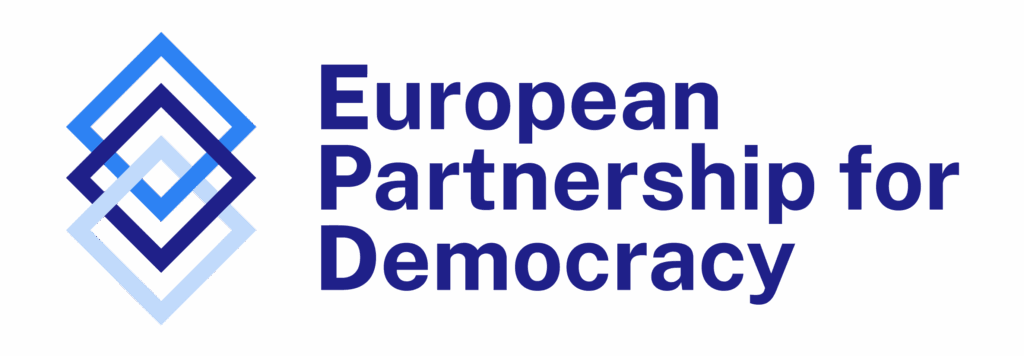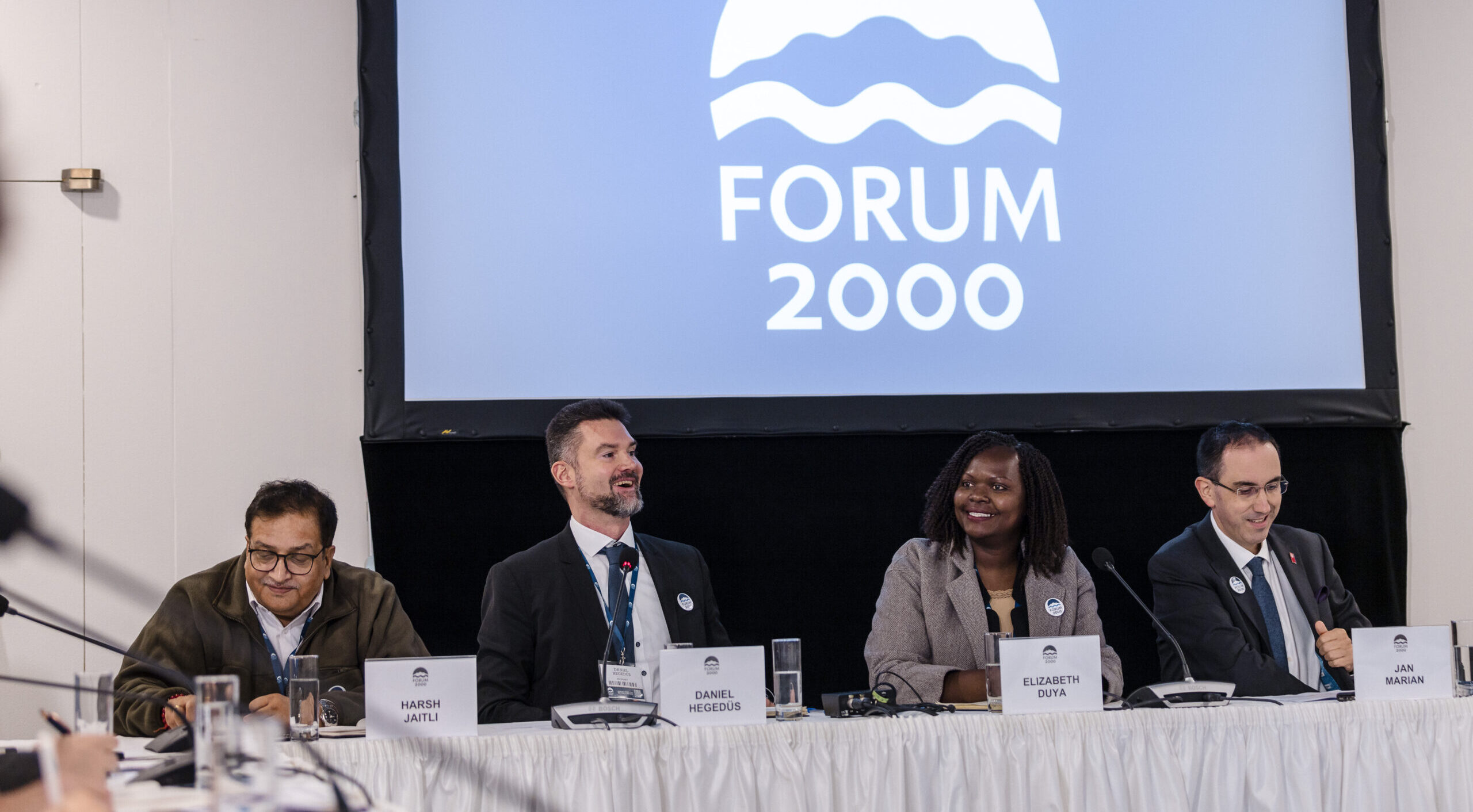By Vincent Labrevois-Simonetti, EPD
Since its founding in 1997 by Václav Havel, Forum 2000 has served as a global platform for leaders, academics, and activists advancing democracy and human rights. Against that backdrop, Elizabeth Duya of Transparency International Kenya (TI Kenya) and Harsh Jaitli of Voluntary Action Network India (VANI) reflected on how civic actors can resist shrinking spaces for international support while cultivating local resilience.
Harsh Jaitli has led VANI in strengthening civil society organizations across India. VANI’s mission is to improve the external and internal enabling environment for CSOs, promoting a positive narrative of the sector. With 632 member organizations and an outreach to 15,000 CSOs and voluntary development organizations nationwide, VANI supports groups working on socio-economic development, improving quality of life, and nation-building. Elizabeth Duya serves as Programme Coordinator for the Citizen Demand & Oversight programme at TI-Kenya, where she works to strengthen the capacities of citizens, grassroots organisations and CSOs to demand good governance, transparency and accountability from government.
Both VANI and TI Kenya are Network Members of the EU SEE, the EU System for an Enabling Environment, designed to document changes and shed light on critical trends in the enabling environment for civil society across 86 countries in Africa, the Middle East, Asia and the Pacific, the Americas and the Caribbean.
Hailing from one of the most dynamic civil society sectors in Eastern Africa, Elizabeth Duya highlighted how Kenyan civil society successfully mobilized to resist the most problematic provisions of the then proposed Statute Law (Miscellaneous Amendments) Bill, No 32 of 2013 that contained serious restrictions on Non-Governmental Organizations(NGOs), including a 15% cap on foreign funding. She further highlighted how civil society actors went on to advocate for the enactment of the Public Benefits Organization Act 2013 intended to replace the 30-year old NGO Coordination Act. However, despite its progressive framework for CSOs, the Act was only operationalized in 2024.
Indeed, as Elizabeth Duya recalled, the events leading to this repressive amendment was largely fuelled by mistrust of CSOs by the newly elected president and his deputy who were at the time facing criminal charges at the International Criminal Court (ICC) following the 2007-2008 post -election violence. Duya explained that this move was in large part prompted by the decisive role played by civil society in providing evidence to the International Criminal Court (ICC) against members of the new administration implicated in the 2007–2008 post-election violence. Using the pretext of potential support on terrorism and anti-money laundering concerns, the government sought to impose a 15% cap on foreign donor funding, seize control of NGO boards, and deregister several organizations, including some of its most vocal critics.
Civil society fought back. With support from international NGOs, Kenyan CSOs launched nationwide campaigns highlighting how such measures would cripple a sector that delivers vital public services and relies heavily on external support. Kenya’s 2010 Constitution, she added, became a crucial safeguard. Even if advocacy had failed, CSOs could have challenged the amendments in court. “Our progressive constitution gave us confidence that we could go to the courts and win if the law was enacted,” said Duya.
Alongside shaping positive narratives, Duya stressed the importance of directly engaging with communities by promoting public ownership of CSO-managed projects. Such efforts help build deeper trust with communities, make the public more receptive to CSOs’ messaging and can serve as the basis for domestic resource mobilization.
In contrast, Harsh Jaitli painted a picture of a very different landscape in India—one where the perception of foreign funding has been shaped by the country’s unique colonial and post-colonial past. “Foreign funding has always been a source of suspicion in India” Harsh noted. The introduction of the Foreign Contribution Regulation Act (FCRA) in 2010 – and its subsequent amendments – tightened the noose on foreign-funded organizations. The law increased administrative hurdles and barred the regranting of foreign funds to nonregistered groups, disproportionately affecting smaller CSOs. These measures not only restricted NGOs but also created a chilling effect on donors, making many hesitate to engage.
Yet, amid these constraints, Indian civil society continues to adapt. Jaitli voiced some optimism, noting that “civil society is most vibrant and innovative when pressed”. He noted that private philanthropy had become increasingly important, with corporate donors stepping in under Corporate Social Responsibility (CSR) initiatives. However, Jaitli noted, these partnerships are often transactional, tied to reputation-building or infrastructure projects rather than transformative social change.
To preserve independence and sustain work in less marketable areas – like human rights or governance – Jaitli noted that many Indian CSOs are developing business arms. Harsh welcomed this trend as vital to develop the “local capacities that make it possible to apply pressure” on governments where foreign funding is insufficient and external pressure is ineffective or unreliable as is the case in India, an increasingly influential global player.
The experiences shared by these EU SEE Network Members point to a wider reality whereby around the world, civil society is being asked to do more with less: defend democratic space, maintain credibility, and reinvent itself amid tightening restrictions and declining support. Yet their stories also show that resilience is not just about survival, it’s about transforming civil society and reconnecting it to the communities and contexts in which it operates.

